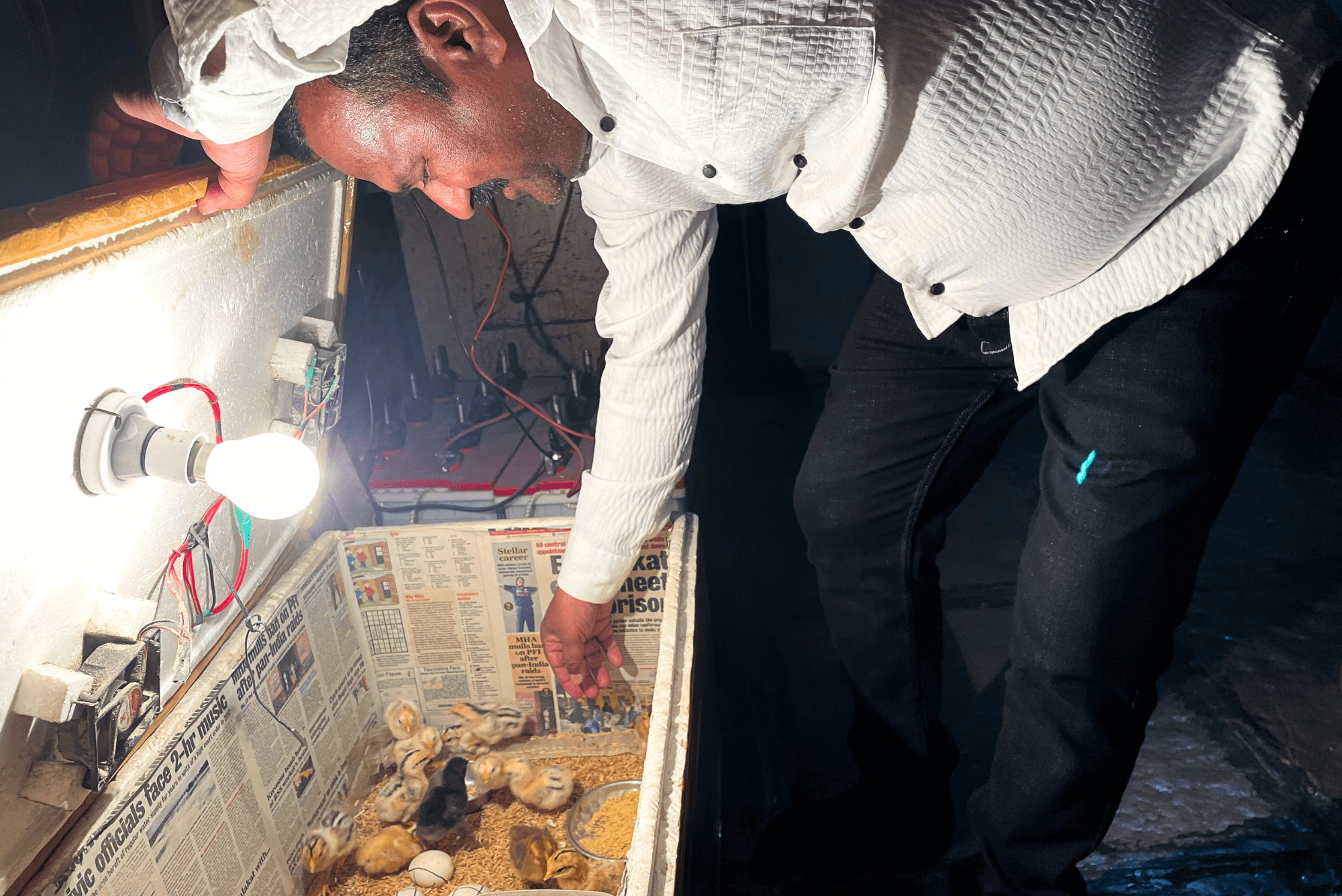
In the world of impact and capital, the "customer" is seen as a single individual, underserved and lacking access to essential services. We believe this view misses a crucial truth. At EPIC World, we repeatedly find that the customer is not just an individual, but the entire household.
Why this shift? The answer is as simple as it is profound: Entrepreneurial Households operate not as disconnected individuals, but as integrated economic units - enterprises in their own right. They manage a complex interplay of diverse income streams and expenditures. To understand their economic behaviour and effectively partner in their growth, we must see them as integrated enterprises, as enumerated in our Reimagining Local Economies report.
Consider Mahesh* and his family, an Entrepreneurial Household we met in the outskirts of Pune. Mahesh's main venture is a tent house business, a stable income that adjusts with seasons. But inside, we found something unexpected: a small handmade incubator for chicks. He's been raising chickens since the pandemic, to diversify his income streams. His mother runs a small mill, serving local villagers. His wife, who lives in their village, manages rental income from a three-story family building. A paramount concern for the family is quality, affordable healthcare for their special needs son, often requiring tedious trips to Pune.
This household clearly thrives on multiple, distinct income streams. What truly impresses, however, is their strategic financial behaviour. Mahesh's tent business and his wife's rentals provide a stable base, freeing him to relentlessly experiment. Over a decade, he's explored over eighteen income ideas - some thrived, others were lessons. He even started an organic vegetable patch, anticipating a market shift during COVID-19. This drive for innovation and calculated risk is a defining mark of an Entrepreneurial Household.
Mahesh's family operates with the dynamic financial management of an enterprise, continually balancing earnings, reinvesting for growth, and prioritizing spending based on both opportunity and necessity. Think of the family as a mini-conglomerate. Each part contributes income, and these income streams are diverse. Each stream adds to the overall inflows for the household, where the family then skilfully manages transactions, showing impressive resilience and foresight in their subsequent outflows.
The true potential of disruption then hinges on this premise: if a household is defined by its inflows and outflows, then we have a clear opportunity to transform both sides of this financial equation.
On the inflow side, FinX, an Elevar Equity portfolio company, exemplifies this. Through sharp BFSI courses and a robust employment exchange, FinX empowers individuals within these households for success. This directly increases their income and amplifies the entire household's revenue generation.
On the outflow side, proactive solutions by CureBay are changing the game. By focusing on preventive care for the whole family, CureBay helps households like Mahesh’s anticipate and avoid excess spending on major healthcare crises. Their approach, with accessible eClinics and proactive health programs, empowers families to manage their health, reducing the risk of a single illness derailing their entire financial plan.
The beauty here is that companies like Samunnati have engineered a way to play a role on both sides of the Core Transaction Value (CTV) scale for a household. Through agri loans, Samunnati facilitates borrowings for the household members, which is an inflow. Through their market linkages, they facilitate trade relationships across the agri value chain, contributing significantly to the outflows.
These approaches confirm a vital truth: the opportunity to disrupt and optimize both the inflows and outflows that define the Entrepreneurial Household is not just present, but crucial. For businesses and investors, recognizing the household as a multi-income enterprise isn't just a different way to look at things; it's essential for building real partnerships and creating solutions at scale.
*Name changed for privacy reasons



